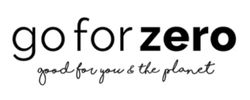Your Cart is Empty
**FREE (PLASTIC-FREE) SHIPPING OVER $89 IN AU | $9.95 FOR AU ORDERS BELOW $89**
Menu
-
- BRANDS
- New
-
A - F
- Aleph Beauty
- Amavasya Healing Store
- Baby Quoddle
- Banksia Pods
- Bare and Boho
- Bear & Kind
- Bearded Chap
- Beauty and the Bees
- Bee Green Wraps
- BioTuff
- Brightberry
- Buchi Brew Co
- Byron Bay Detox
- Chubby Bee
- Coconut Bowls
- Core Skincare
- Desert Shadow
- Downunder Wash Co
- Earth Greetings
- Eco Coconut
- Eco Art & Crafts
- Eco Max
- Eco Modern Essentials
- Eco Toothbrush
- Ecyo
- Eden Health Foods
- Ethique
- Ever Circle
- Ever Eco
- E.sup
- Femme Organic
-
G - N
- Gentle Habits
- Go for Zero
- Goodeau
- Good Change Store
- Good Cuppa
- Green Grip
- Haakaa
- Here and After
- Honeybee Wraps
- Honeysticks
- Ilo Wellness
- IME
- Jack n' Jill
- Kayu & Co
- Kelpy Bone
- Kiin Baby
- Kooshoo
- Laminated Cotton Shop
- Left-handesign
- Love Beauty Foods
- Magic Earth
- Mika Creations
- Miod
- My Mimi
- Natural Rubber Soother
- No Nasties
- Noosa Basics
- Notely
- Nuebar
- Nutra Organics
- Nurtur Tea
-
O - S
- One Chew Three
- Paper Saver
- Patch
- Planet Revive
- Pleasant State
- Poppy and Daisy Designs
- Raw Medicine
- Resparkle
- Retro Kitchen
- Rosie Lou
- Rustic Peppermint
- Salty Aura
- Saver Sleeve
- Scoop Whole Beauty
- SealPod
- Shampoo with a Purpose
- Sileco
- Solid Oral Care
- Sow n Sow
- StokedNZ
- Strap
- Stray Willow
- Sunbutter
- Surfmud
-
T - Z
- Tappwater
- That Red House Soapberries
- The Australian Natural Soap Company
- The Fabric Comb
- The Glitter Tribe
- The Keeper
- The Loose Tea Company
- The Naturool Co
- The Physic Garden
- The Swag
- The Tooth Faerie
- Thrive Tallow
- Togo Sun
- TOMbag
- TOM Organics
- Tooletries
- Urban Composter
- Urban Greens
- Urthly Organics
- Veggie Saver
- Viva La Body
- We Might Be Tiny
- Winki Zinc
- Woohoo
- Wotnot
- ZeroCare
- Zone Yoga
- 📚 15% off back to school & work
- SKINCARE & MAKEUP
- BATHROOM
- HOME
- FAMILY
- Zero Waste packs & Gifting
- SALE
- BLOG
- ABOUT US
-
- Login / Subscribe
-
Australia (AUD $)

**FREE (PLASTIC-FREE) SHIPPING OVER $89 IN AU | $9.95 FOR AU ORDERS BELOW $89**

Carbon Offset Projects Go For Zero Supports
April 01, 2022 4 min read
Did you know we're proud partners of Trace?! The legends that help us calculate and offset our organisational carbon footprint!
Over 2 years we have offset 21.3tonnes of CO2 which is the equivalent to 360 shipping containers full of pollution. *yeeha!*
This includes the following:
- Energy: Electricity and water use in the warehouse and work from home days.
- Travel: for staff commuting to the warehouse and our store.
- Suppliers: Software providers, telecommunications, accounting and tax!
- Waste: Paper/cardboard, food, combined recycling, soft plastic and mixed waste. Our company mixed waste is only 1 standard kerbside bin load per month, and we have a plan in place to reduce this even further. The plan includes encouraging our suppliers to use plastic-free tape, and reducing the need for palette wrap. They are already adapting, a shipment from our box supplier arrived on 11 palettes without any plastic wrap! Now that's a huge win for us and the planet!
- Freight: This covers the freight for all of our domestic and international private brand shipments
- Order Packaging: This includes the materials of all the packing items that protect your orders (boxes, padding, notes, water activated tape, compostable labels). Did you know we ship 100% plastic-free and our boxes are made from 70% recycled materials?!
We didn't need to offset the delivery of your orders through Trace as our shipping partners (Sendle & Aus Post) already do this for us. *woot woot*
Did we mention Trace does so much more than plant trees?! From using rice husks to create cement, to supporting renewable energy in Indonesia, keep reading to learn about the 6 climate projects our offsetting investments support.
1. Turning Rice Husks into Cement!
Project: Siam Cement Biomass, Thailand
Percentage: 6% of our offset investment is targeted towards this project
Cement production is responsible for 5% of total man-made global CO2 emissions. Yikes!
Trace are working with projects in Thailand that uses biomass (rice husks) instead of fossil fuels for the production of cement.
The project helps avoid over 6000,000tonnes of CO2 per year, enables a circular 'waste' economy, gives rice husks a second life, and provides jobs and income for local farmers!
2. Protecting and Restoring Swamp Ecosystem
Project: Katingan Peatlands Conservation, Indonesia
Percentage: 39% of our offset investment is targeted towards this project
Protecting and restoring 150,000 hectares of peat swamp thats's home to critically endangered Sunda Pangolin, White-Shouldered Ibis and up to 10% of the world's Bornean Orangutan population.
Carbon is stored deep underground in this area (up to 13 meters), in the peat soils for over 26,000 years.
This is the worlds largest emission reduction forest project, by protecting this area they are preventing the release of 7.5 million tonnes of CO2 each year. That's the same as removing 2 million cars from the roads each year!
3. Combatting deforestation to protect Orangutans
Project: Rimba Raya Peatlands Conservation, Indonesia
Percentage: 10% of our offset investment is targeted towards this project
Indonesian tropical peat swamp accounts for half of the tropical peat swamp forest in the world (roughly 21 million hectares). Unfortunately Indonesia loses roughly 2.5 million acres of forest cover annually, which is one of the reasons they are the worlds third largest greenhouse gas emitter despite being non-industrialised.
This project protects 64,000 hectares in Borneo from the ever-encroaching bulldozers of the palm oil industry that is home to one of the last remaining wild populations of Orangutans on earth. It funds the education of 3,750 students in the community, protects 105,000 endangered Bornean Orangutans and reduces roughly 104,886,254tonnes of CO2 over a 30 year period.
4. Providing Clean and Efficient Cooking Stoves in Nepal
Project: Efficient Cookstoves, Nepal
Percentage: 6% of our offset investment is targeted towards this project
In Nepals disadvantaged communities many families are still using cookstoves that produce high levels of harmful smoke that lead to respiratory issues and damaging greenhouse gases. They also place higher demand on the need for firewood, placing pressure on local forests, not to mention the higher risk of stovetop related injuries.
This project distributes improved cooking stoves that have a built in metal or ceramic combustion chamber for a safer, more efficient, lower emission system that lasts longer (roughly 7 years).
It prevents an estimated 58,000tonnes of CO2 from entering the atmosphere each year, lowers indoor smoke pollution by 70%, and gives 194,000 people access to clean and reliable cooking systems.

5. Protecting and Restoring Indigenous Land
Project: Mount Sandy Conservation, Australia
Percentage: 6% of our offset investment is targeted towards this project
Protecting and restoring the unique flora and fauna of our diverse landscape is imperative. The area spans over 200 hectares and is slowly slipping away due to agriculture and farmland development. This project aims to build a strong community that recognises the important relationship between the Ngarrindjeri people and Mount Sandy to avoid the extinction of sacred native plantations and wildlife.
It also supports jobs for the Raukkan Aboriginal Community by creating a local nursery that grows natives for revegetation and employing members for onsite works such as monitoring vegetation, fencing, mapping, and pest and weed control.
6. Helping Indonesia shift to Renewable Energy
Project: Darajat Geothermal, Indonesia
Percentage: 32% of our offset investment is targeted towards this project
Geothermal is the underdog of renewable energy. Geothermal energy can be produced almost anywhere, however it is most easily accessed in locations that sit where the earth's tectonic plates meet and shift. In some areas when the water becomes hot enough, it can break through the earth's surface as steam or hot water. Have you ever been to a hot spring?! This hot steam is piped into turbines which powers a generator! Providing a renewable option that is consistently reliable with minimal impact and low emissions.
The project reduces roughly 705,394tonnes of CO2 emissions per year, supports Indonesias renewable energy transition, and provides jobs and improved infrastructure for the surrounding areas!

How a Dry Steam Geothermal Power Plant Works (Credit: Save on Energy)
As you can see offsetting your impact spans much further than planting trees. It gives us hope knowing that there are so many planet loving projects developed by people who have a similar mission to us, we're not alone! Each project is verified by a relevant external body including: Verra VCS, The UNFCCC and Gold Standard.
Will you support climate positive organisations that see value in offsetting their footprint? Send this to your sustainable bestie to spread the word!
p.s. did we mention you can offset your individual or family footprint with our mates at Trace?! Hello birthday gift idea!
Leave a comment
Comments will be approved before showing up.
Recent Articles
- From Festival Fields to Fresh Starts: How Abandoned Tents Are Finding a Second Life January 08, 2026
- Australia’s PFAS Wake-Up Call and the Shift to Smarter Water Treatment January 02, 2026
- Soft Landings That Matter: How Mattress Recycling Is Closing the Loop in WA December 16, 2025
- How French Polynesia Is Leading Global Ocean Conservation with the World's Largest Marine Park December 12, 2025
- NSW Takes a Big Step Toward a Low Waste Future with New Plastics Plan November 28, 2025
Subscribe
Sign up to get the latest on sales, new releases and more …

